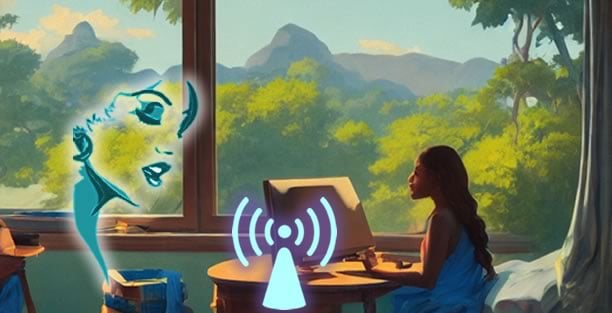Learn Croatian
| English | Croatian | |||
|---|---|---|---|---|
| Hello | Zdravo | |||
| Hello | Dobar dan | |||
| Good evening | Dobra večer | |||
| Goodbye | Doviđenja | |||
| See you later | Vidimo se | |||
| Yes | Da | |||
| No | Ne | |||
| Excuse me! | Molim Vas! | |||
| Thanks | Hvala | |||
| Thanks a lot | Puno hvala! | |||
| Thanks a lot | Hvala lijepa! | |||
| Thank you for your help | Hvala na pomoći | |||
| You’re welcome | Nema na čemu | |||
| You’re welcome | Molim!, molim! | |||
| Okay | U redu | |||
| How much is it? | Koliko košta? | |||
| How much is it? | Pošto je? | |||
| Sorry! | Oprostite | |||
| Sorry! | Pardon | |||
| I don't understand | Ne razumijem | |||
| I get it | Razumio sam | |||
| I get it | Razumjela sam | |||
| I don't know | Ne znam | |||
| Forbidden | Zabranjeno | |||
| Excuse me, where are the toilets? | Molim Vas, gdje je klozet? | |||
| Excuse me, where are the toilets? | Molim Vas, gdje je WC? | |||
| Happy New Year! | Sretna Nova godina | |||
| Happy Birthday! | Sretan rođendan | |||
| Happy Holidays! | Sretni praznici! | |||
| Congratulations! | Čestitam! |
Objectives This course aims to give travelers the tools they need to quickly master essential expressions in Croatian for everyday situations, such as greeting someone, asking for directions, or ordering a dish in a restaurant. By the end of the course, learners will be able to communicate with simple words on their next trip to Croatia.
How to Learn Croatian by Yourself? Start with an Easy and Free Online Course!
We have adopted an objective and efficient approach to learn how to speak a language easily and quickly.
We suggest you start by memorizing words, phrases, and practical expressions that you can use in everyday life and that will be useful when traveling.
Getting used to pronouncing words out loud, such as numbers, is an easy exercise you can practice often and at any time throughout the day.
This practice will help you get accustomed to the sounds of your chosen language, making it more familiar.
Once your holidays have begun, whether in Zagreb, Korčula, Mljet, or elsewhere in Croatia, you will be surprised at how familiar and easy to understand it will seem.
Furthermore, using a pocket dictionary is always useful, particularly during a trip. It allows you to find the translation of new words and enrich your vocabulary.
Why Speak Croatian While Traveling?
An official language in Croatia, Bosnia and Herzegovina, Montenegro, and in provinces of Serbia, Austria, and Italy, Croatian is spoken by approximately 6 million people around the world.
Dream Holidays Combining the Pleasures of Nature and the Comfort of the City
At the crossroads of cultures that have marked European history, including Venetian, Austro-Hungarian, Roman, Byzantine, and Ottoman, Croatia has a unique topography and geography that favor the presence of diverse landscapes.
These range from the plains and lakes in the north to the mountains and rocky coastline, dotted with numerous islands and islets. Among these beautiful landscapes are the Plitvice Lakes National Park, Diocletian's Palace in Split, and the Elaphiti Islands. Moreover, tourism is so important for the country that it accounts for around 25% of its GDP.
The multi-cultural nature of the country is an asset for visitors passionate about gastronomy, tempting them to try specialties such as börek (a savory pastry from the Balkans) and kulen (pork sausage). In literature, the country has many outstanding authors, especially in the realm of science fiction, such as Ivo Brešan, Dalibor Perković, and Milan Šufflay.
Make a Success of Your Stay in Croatia
Whether you are going to spend a few days with friends on a leisure trip or if you are on a business trip, nothing will be more useful than being able to slip in a few words in the language of your interlocutors. They will appreciate your effort and be more willing to help.
How to Succeed in Having Good Pronunciation Within a Week to a Month?
The pronunciation of Croatian is relatively easy, as its writing is almost completely phonemic, meaning the written letters correspond to the phonemes they represent.
Discover Some Characteristics of the Language:
- The R can be a syllabic peak when at the beginning of a word or in some borrowings.
- The union of a voiceless and a voiced consonant in a word, as a consequence of the addition of an inflectional ending or a suffix, causes the first consonant to be assimilated to the second by becoming either unvoiced or voiced.
- The accentuation of words in Croatian marks equally well the duration of the vowel and the "musicality" of the word (tonic accent).
Practical Tips for Learning Croatian
1. Start with the Basics
Begin by learning the Croatian alphabet and basic pronunciation rules. This foundation will help you read and speak Croatian more accurately.
2. Build Your Vocabulary
Focus on everyday words and phrases that you are likely to use. Flashcards and language apps can be very helpful in expanding your vocabulary.
3. Practice Speaking
Speak Croatian as much as possible. Practice with native speakers or fellow learners. Use language exchange platforms to find conversation partners.
4. Immerse Yourself
Immerse yourself in the language through Croatian media. Watch Croatian movies, listen to Croatian music, and follow Croatian news. This will help improve your listening skills and familiarize you with the cultural context.
5. Use Official Online Resources
There are many official online resources to help you learn Croatian:
- Croatian Language Portal: Offers comprehensive resources for learning Croatian and information about Croatia.
- Ministry of Science and Education of the Republic of Croatia: Provides resources and information about learning Croatian.
- Voice of Croatia: Offers news and cultural programs in Croatian and other languages.
- Croatian National Tourist Board: Provides guidelines and resources for learning about Croatian culture and language.
6. Take a Language Course
Consider enrolling in a language course with a qualified teacher. Personalized instruction can accelerate your learning and help you master difficult concepts.
7. Stay Consistent
Consistency is key. Practice Croatian daily, even if only for a few minutes. Regular exposure and practice will lead to steady progress.
By following these steps and utilizing the available resources, you can start speaking and understanding Croatian in no time. Happy learning!





